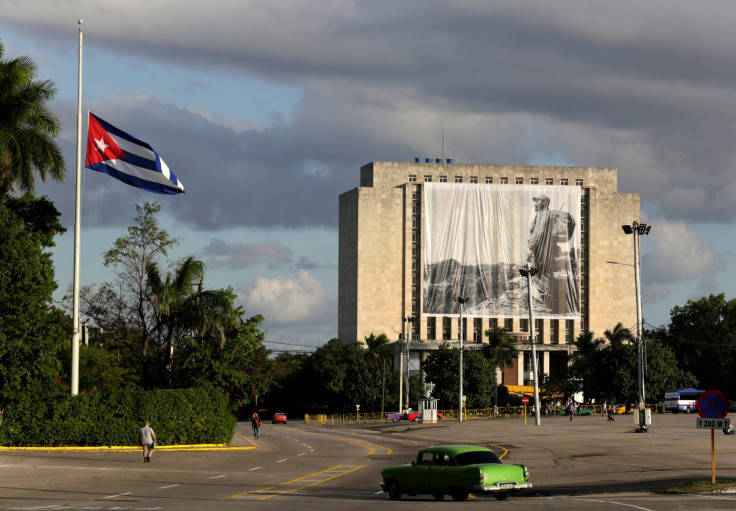Black Lives Matter Praises Fidel Castro As An Ideal Revolutionary

The Black Lives Matter movement mourned the death of former Cuban leader Fidel Castro in a statement Sunday, saying they were similarly on a “revolution” to create a world of “freedom” and “peace.” The statement hailed the authoritarian dictator and staunch U.S. adversary who ruled Cuba for almost 50 years as an ideal revolutionary leader because of his insistence that healthy food, clean water, healthcare, paid vacations and education were all “requirements of any humane society,” while the freedom of “oppressed people” remained prevalent in the U.S. among “people of color” in places like North Dakota.
“As Fidel ascends to the realm of the ancestors, we summon his guidance, strength, and power as we recommit ourselves to the struggle for universal freedom. Fidel Vive!” the statement said.
Titled “Lessons from Fidel: Black Lives Matter and the Transition of El Comandante,” the statement said group members were “indebted” to the Cuban revolutionary leader for providing “a space where the traditional spiritual work of African people could flourish.” The Black Lives Matter movement cited Castro providing resources to the desperate people of Haiti after an earthquake in 2010 left more than 300,000 dead, and his “attempting” to support the black people of New Orleans after Hurricane Katrina, while the U.S. government “left us to die on rooftops and in floodwaters,” as examples of Castro’s dedication toward the plight of black individuals.
“Although no leader is without their flaws, we must push back against the rhetoric of the right and come to the defense of El Comandante,” read the statement.
The U.S. government allotted more than $1 billion in resources aimed at either killing or removing Castro from power in Cuba, according to Al Jazeera. Castro, who's socialist initiatives were responsible for thousands of Cubans fleeing the island nation, thwarted all such attempts throughout the terms of 10 U.S. presidents before his old age and a serious illness forced him to abdicate his power to his brother, Raúl Castro, in 2006, the Miami Herald reported.
Members of the Black Lives Matter movement thanked Castro for harboring activists in Cuba like Assata Shakur, a former Black Panther convicted of killing a police officer in New Jersey in 1973. After escaping prison in 1979, Shakur was granted political asylum from Castro and is currently living in Havana, Cuba, on the FBI’s Most Wanted List with a $1 million bounty on her head. The statement also thanked Castro for providing safe haven for Michael Finney, Ralph Goodwin and Charles Hill, who were all members of the Republic of New Afrika, a militant group that attempted to convert the southern U.S. states of Louisiana, Mississippi, Alabama, Georgia and South Carolina into a detached nation solely for African Americans.
Roughly 40 percent of Americans said they supported the Black Lives Matter movement, while about 30 percent of those who were familiar with the group said they didn’t understand its goals, according to a Pew Research Center survey conducted between Feb. 29 and May 8.
The movement, which was created in 2013, burst into the national spotlight amid the shooting the 2014 police shooting of Michael Brown. About 59 percent of black Americans think that Black Lives Matter can ultimately be effective in bringing racial equality, while only 31 percent of those with a bachelor’s degree believe the movement will inspire inspire change.
A petition that was created in July asking the White House to formally recognize Black Lives Matter as a terrorist organization has received 141,444 signatures.
© Copyright IBTimes 2024. All rights reserved.






















